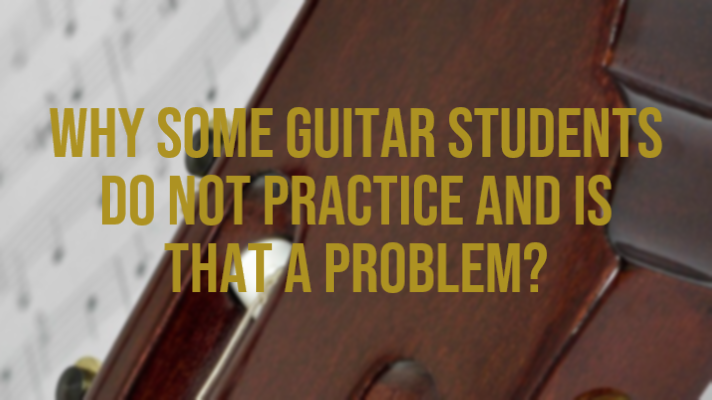Understanding the Ideal Student
Teacher: “Good afternoon, Peter!”
Student: “Good afternoon, Sir.”
Teacher: “How was your week?”
Student: “Oh, it was great! I practiced almost every day. I completed all my theory work and started learning a piece by Tarrega. I saw someone playing it on YouTube, and I love it! I’ll play it for you before the end of the lesson if you don’t mind.”
This exchange represents every music teacher’s dream—a student who is motivated, consistent, and enthusiastic. However, this ideal scenario is uncommon. Only about 5% of students show this level of dedication and progress, sometimes even less.
The Reasons Behind Lack of Practice
Why don’t most students practice regularly? Are they not passionate about playing the guitar, or is it just a matter of discipline? According to a small informal survey I conducted in 2008, about 80% of students love playing the guitar. So, why don’t they put in the practice hours? The answer is complex, but after 30 years of teaching guitar, I’ve observed some common factors.
Successful students, those who consistently improve, have one key trait in common—they establish and maintain a practice routine. This routine, practiced over time, leads to visible progress, which in turn fuels their motivation. This positive cycle—the more they practice, the more motivated they become—sets them apart.
The Challenge: Establishing a Consistent Practice Routine
One common mistake music teachers make is assuming students automatically understand the importance of regular practice. This assumption can lead to frustration for both teachers and students. Unlike other school subjects, where students might succeed with minimal homework, music requires consistent practice.
In a typical school setting, attending classes and paying attention can be enough to pass tests. However, music lessons differ significantly. Students usually spend only 30 minutes to an hour per week with their music teacher. This limited time is insufficient for mastering an instrument unless supplemented with regular practice at home.
Why Lack of Practice Is a Problem
Is it a problem if students don’t practice their instrument regularly? Absolutely. Lack of practice hinders progress, leading to frustration for both students and teachers. However, this issue is more complex than it appears.
Establishing a practice routine is challenging, especially for beginners. Learning to play an instrument requires developing discipline, setting musical goals, and staying motivated. Practice is more than just a physical activity; it involves mental and emotional engagement as well.
Building a Practice Routine That Works
To help students succeed, teachers must emphasize the importance of consistent practice. Developing a routine requires discipline, motivation, and clear goals. All these elements are interconnected and crucial for success.
In my teaching, I use specific strategies to make practice more engaging and less daunting. I’ve also created an online course, Motivate Yourself to Practice Guitar, designed to help students establish and maintain a practice routine. While not a one-size-fits-all solution, this course offers valuable tools to overcome common challenges in learning guitar.

Leave a Reply